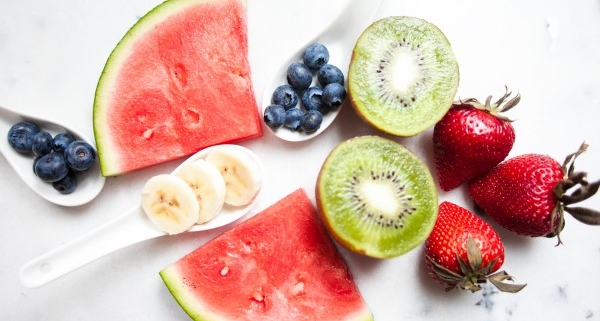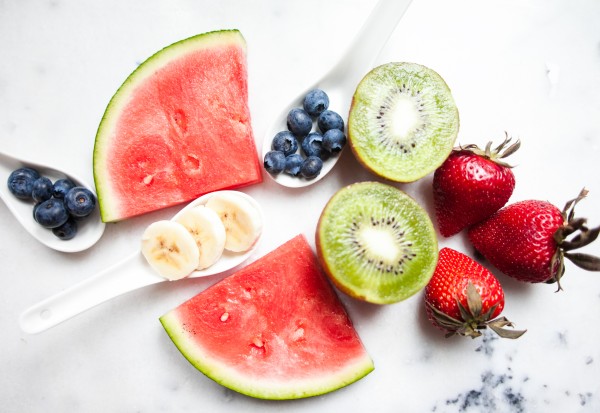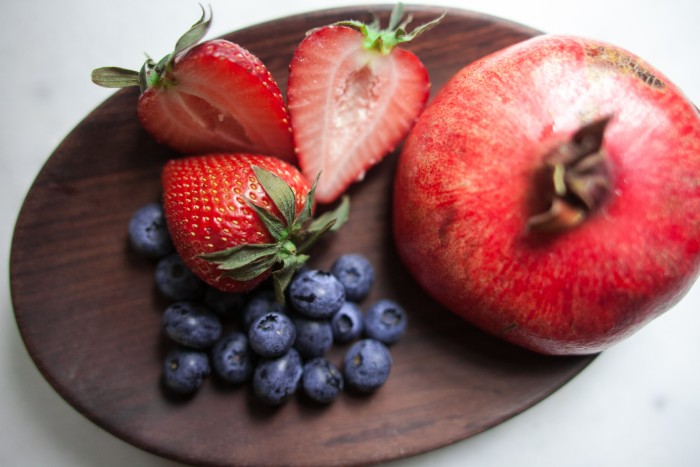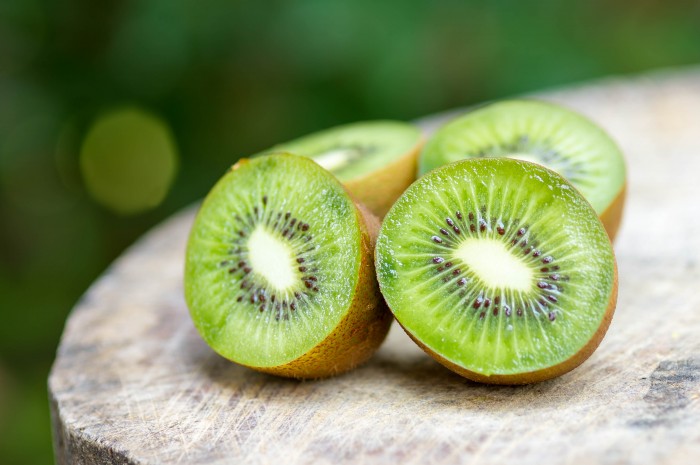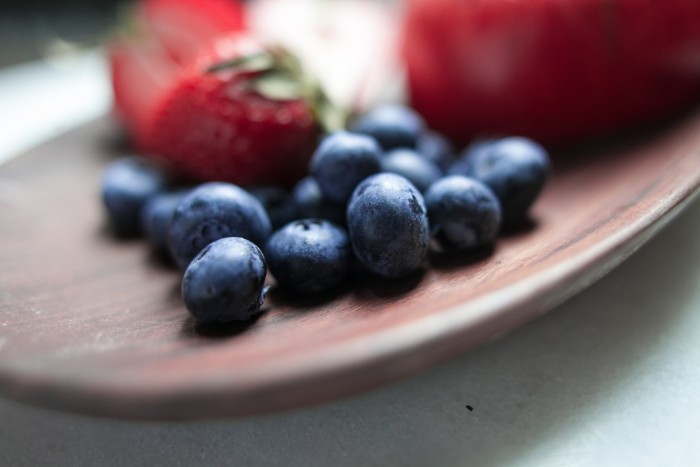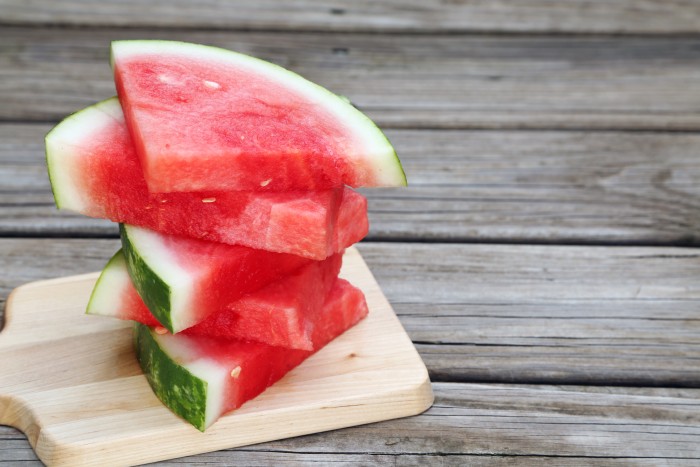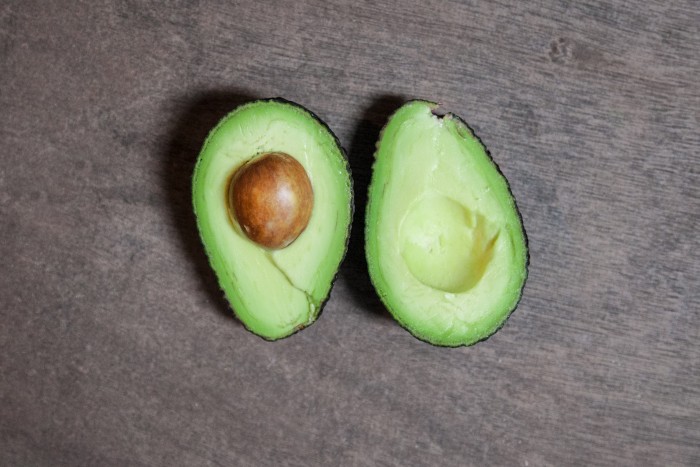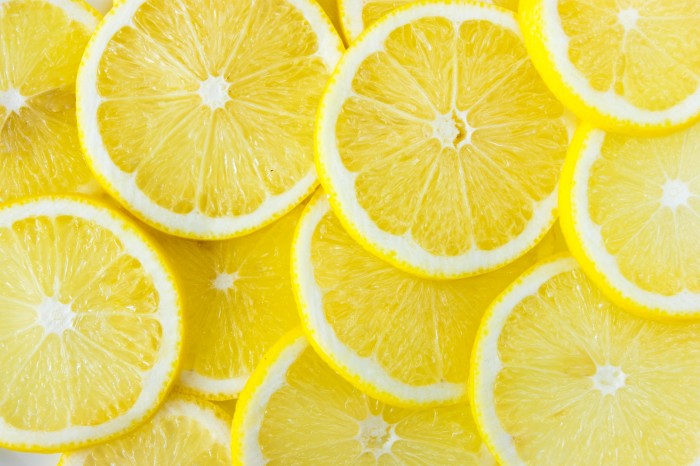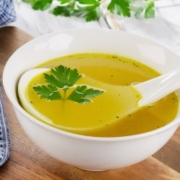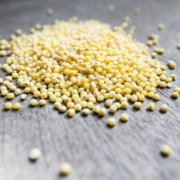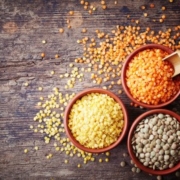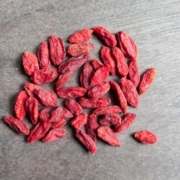Banana:
Bananas pack a nutritional punch as they are rich in potassium. Potassium is an essential mineral in maintaining normal blood pressure and an important component in cardiovascular health. They have a unique mix of vitamins and minerals and provide low glycemic carbohydrates making them ideal for athletic performance. Additional health benefits may include lowering the risk of certain cancers and asthma and promoting regularity.
note: people who are taking beta-blockers should be conscious of high potassium foods as beta blockers tend to increase potassium in the blood. Consult with your doctor about regulating and monitoring your potassium levels.
1 small banana:
Vitamin B6: 25% DV
Manganese: 16% DV
Vitamin C: 14% DV
Potassium: 12% DV
Fiber: 12% Dv
Strawberries:
Strawberries are rich in antioxidants and anti-inflammatory nutrients including quercetin, anthocyanins and polyphenols. They are also rich in the essential nutrients folic acid, fiber and vitamin C. One cup of fresh strawberries provides 160% of your daily vitamin C needs. They have been shown to support cardiovascular health, improve regulation of blood sugar, as well as prevent certain cancers. They are a go to treat in my family in smoothies or diced and served with yogurt or a summer salad.
1 cup:
Vitamin C: 113% DV
Manganese: 28% DV
Fiber: 12% DV
Iodine: 12%
Folate: 9% DV
Potassium: 6% DV
Magnesium: 5% DV
Kiwi:
Kiwis are a nutrient dense food meaning they are high in nutrients but low in calories. They are rich in antioxidants, vitamin C, fiber and potassium. Vitamin C is a water soluble vitamin that neutralizes those icky free radicals that cause damage to cells. The possible benefits of consuming kiwis and many other fruits includes a reduced risk for heart disease, diabetes, obesity and some cancers.
1 cup:
Vitamin C: 85% DV
Vitamin K: 31% DV
Copper: 10% DV
Fiber: 8% DV
Vitamin E: 7% DV
Potassium: 6% DV
Blueberry:
These are rich in the flavanoid, anthocyanin and the polyphenol, quercetin that contribute to a host of their health benefits. They are rich in iron, phosphorous, calcium, zinc and vitamin k that contribute to building and maintaining bone strength. Blueberries have been shown to improve heart health, cognitive function, regulate blood sugar levels, improve digestion, fight wrinkles and contain anti-cancer benefits. I like to incorporate these nutrient dense berries to my smoothies with some protein powder and almond milk.
1 cup:
Vitamin K: 32% DV
Manganese: 25% DV
Vitamin C: 19% DV
Fiber 14% DV
Watermelon:
Watermelons are synonymous with summer and help to quench your thirst after a workout. They are rich in anti-inflammatory compounds and provide antioxidant support for cardiovascular health. They are rich in lycopene, zinc, choline,copper, vitamin B6, vitamin A, potassium, and vitamin C. The antioxidant beta carotene provides eye health and heart health. Consuming watermelon can contribute to overall improved digestion and regularity, improved hydration, reduced inflammation and muscle soreness and improved skin texture due to its high vitamin A content. I like to make watermelon and mint juices for extra hydration after a long workout.
1 cup:
Vitamin C: 16% DV
Pantothenic Acid: 7% DV
Copper: 7% DV
Vitamin A: 5% DV
Biotin: 5%DV
Avocado:
These are rich in monounsaturated fats (the healthy fat) that provide a wide range of anti-inflammatory benefits. Similar to all fresh fruits they are nutrient dense as well. They are rich in the carotenoid family that provide protection for the heart and eyes, promote blood sugar regulation, may prevent osteoporosis because of their high vitamin K content and improve digestion and regularity.
I add them to my salads or smoothies for a dose of my daily good oils or make a homemade guacamole.
https://iquitsugar.com/recipe/super-speedy-guacamole/
1 cup:
Pantothenic Acid: 42% DV
Fiber: 40% DV
Vitamin K: 35%
Copper: 31% DV
Folate: 30% DV
Vitamin B6: 23% DV
Vitamin E: 21% DV
Potassium: 21% DV
Vitamin C: 20% DV
Lemon:
Lemons are rich in phytonutrients and provide an antibiotic affect on our body. They are rich in vitamin C that is the main antioxidant in our body. Vitamin C is a water-soluble vitamin that neutralizes free radicals present in our body. Vitamin C supports a strong immune system so it is helpful in fighting colds, flus and ear infections.Additionally, they help to maintain a healthy complexion because of their vitamin C content which plays a vital role in collagen formation, they increase iron absorption when combined with iron rich foods (spinach or chickpeas) and may prevent asthma. Lemons increase detoxification in the body because it activates the release of bile which acts as an emulsifier for fat and removes fat soluble toxins.
I squeeze lemon juice and some of the zest into a warm glass of water every morning for digestive health and my daily dose of vitamin C.
¼ cup:
Vitamin C: 31% DV
Folate: 3% DV

